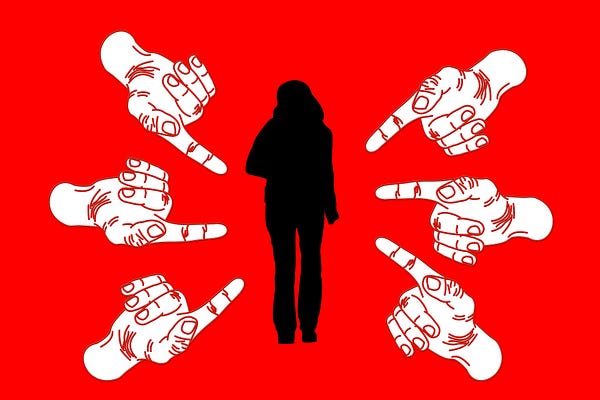How to identify workplace bullying, and how civility can help change it all
What do you see when you think of a bully? The big jock dude holding the nerd against a locker? Miss Trunchbull spinning children around by their pigtails? Girls teasing other girls about their shoes or hair cut?
As a rule, these images are all school based. But bullying happens everywhere, not just in school.
You can go into the workplace, and Miss Trunchbull is now your boss, she’s belittling you in front of the rest of the team at the meeting. The jock is now just having “banter”. The girls are just planning nights out excluding the other girl.
With work taking up almost half of our waking hours each week, feeling low, anxious, stress and threatened at work is hugely impactful on our physical and mental health.
www.bullying.co.uk provides this list of examples of workplace bullying:

- Being constantly criticised, having duties and responsibility taken away without good reason
- Shouting, aggressive behaviour or threats
- Being put down or made to feel like the butt of the jokes
- Being persistently picked on in front of others or in private
- Being constantly ignored, victimised and excluded regularly
- Constantly mocking and attacking members of staff
- Spreading malicious rumours about members of staff
- Misuse of power or position to make someone feel uncomfortable or victimised
- Making threats about job security without any basis or substance
- Blocking promotion or progress within the workplace
Banter or Bullying?
How can you tell when something is “banter” or when it is malicious? Having fun and sharing jokes within the workplace is a very valuable experience. It allows for friendships to form, bonds to be made, positivity, and productivity increasing. But the thing to remember is, banter should be reciprocal. If comments are made, but not responded to in kind, it is likely that the recipient is uncomfortable with the subject (regardless of if the initiator intended them to be). If they aren’t responding, then stop! Don’t try to defend the banter, just accept it isn’t appreciated and move on.
Does the “banter” focus on just one person?
If the office is all joking about and with each other, then it is likely banter and fun. If all the banter is the office focused on Jim from Accounting, then it is more likely bullying. Singling people out is hurtful and isolating.
Is it personal?
Banter is fun. It promotes good feelings. Commenting negatively about individual’s appearance, personality, or perceived weakness? That’s bullying.
How can you work to prevent bullying from occurring in your workplace?
Be civil
You don’t have to be friends with everyone. You don’t have to like everyone. But being civil is essential.
Christine Porath has studied the effect of incivility on people, the effects of disrespect and rudeness. She states that everyone is different, and finds different things disrespectful, but that regardless of intention, all acts of incivility have consequences.
She performed studies and discovered that not only did those experiencing incivility suffered from decreased performance, but that it also affected everyone who witnessed it.
Medical teams with a rude supervisor are more likely to miss information and make mistakes. People reading words to trigger rudeness such as “obnoxious” were five times more likely to miss information on a screen than those who don’t.
FIVE TIMES more likely. That’s five times the errors.
How much does that cost a business in just one day? Cisco estimated that they could be losing $12 MILLION a year because of incivility.
So, what do you do? How do you take this information and make it work for you?
Raise them up
Not just that. Being civil will stop people from being put down, but to succeed, you need to also raise them up. Data has shown that what employees want more than recognition, feedback, or learning, is respect. Respect increases health and productivity.
“So where do you start? How can you lift people up and make people feel respected? Well, the nice thing is, it doesn’t require a huge shift. Small things can make a big difference. I found that thanking people, sharing credit, listening attentively, humbly asking questions, acknowledging others and smiling has an impact.” — Christine Porath
You cannot have civility and bullying at the same time. Initiating one will help to eradicate the other.
It pays mentally, physically, and financially — what is there to lose?
Watch Christine’s full TEDx talk here
Further information that may interest you: mental health, encouraging, building confidence, tackling mental health in the workplace,
DocHQ Ltd is a Health Tech company improving choices. We help you connect efficiently to health support and advice whether you are at home, work or travelling. See our website for our services or call us on 0330 088 0645.



